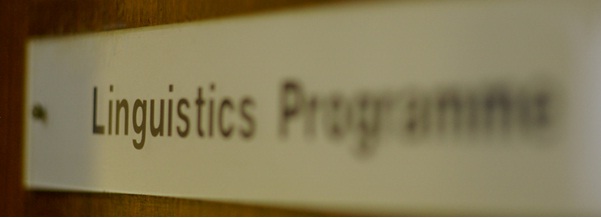
''Why should I study Linguistics?''
South Africa is known for its diversity of cultures, religions and ethnic groups. This cultural richness is tightly linked to the country's linguistic complexity, which is reflected in the fact that the constitution recognises 11 official languages. The nation's multilingualism can likewise be found in the individual. Most South Africans are in command of more than one language, as different languages and dialects are acquired in the family, through contacts with neighbours and friends, and in educational contexts. The strong interconnections between language and culture, society and the individual make South Africa an ideal place to study Linguistics - the scientific analysis of language with all its intriguing properties.
More broadly, Linguistics is the rigorous study of one of the most important features of the human species - the ability for complex and varied communication. Language is important historically, cognitively, evolutionarily, and socially, and studying it can produce rich and fascinating research.
''Sure, languages are interesting, but what really constitutes Linguistics?''
The question posed above is a hard one to answer, not least because Linguistics is a diverse discipline with many sub-fields, and many different 'goals'. One such goal, pursued by psycholinguists, is the empirical investigation of language as a mental capacity of the human mind. Psycholinguists explore the mental operations that enable and underlie language use, and their work often intersects with disciplines such as computer science and Artificial Intelligence. If you are interested in psycholinguistics, find out more here.
A different goal is the discerning of language universals, or the properties shared by all natural languages, and this is the pursuit of theoretical linguists and formal linguists. Linguistic universals represent an integral part of the knowledge a person must have to be able to acquire, use and understand a language. Theoretical linguists describe individual languages and seek to explain the faculty of language as a species-specific and genetically inherited mental capacity. Formal linguists aim at incorporating the results of these studies into broader theoretical frameworks that can explain language as an essentially human ability and as a formal system. If you are interested in theoretical and formal linguistics, learn more here.
A further goal of linguistic inquiry is the dissection of corporate, educational and political issues that are associated with language, and this is the interest of sociolinguists. This line of linguistic enquiry is motivated by the fact that languages are means for social interaction, and often overlaps with psychology, anthropology, sociology, and even economics. Sociolinguistics is closely related to and partly overlaps with applied linguistics, which uses theoretical and empirical findings from formal linguistics, psycholinguistics, sociology and education and applies these insights to various educational and professional contexts. If you are interested in sociolinguistics, find out more here.